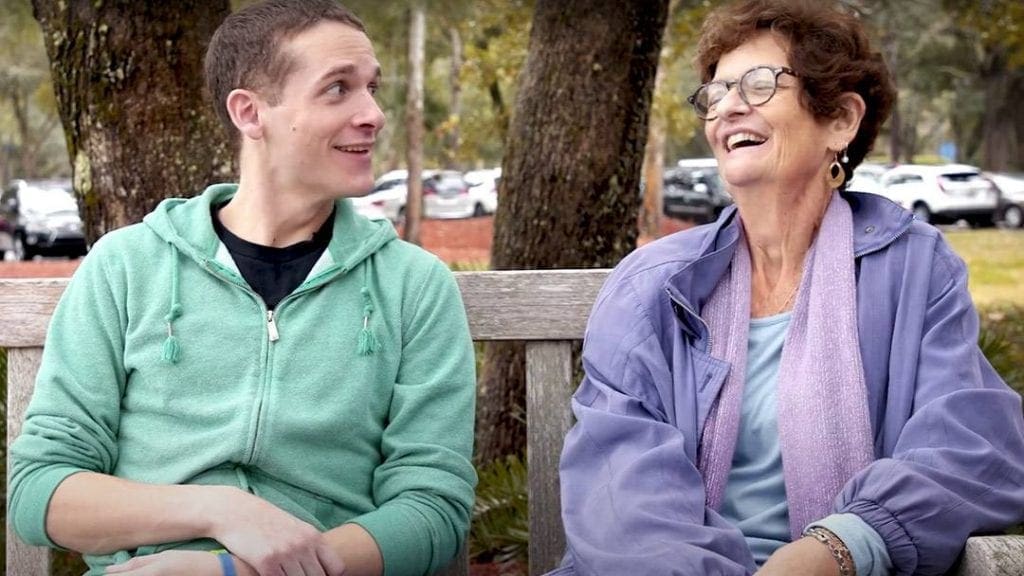Son’s offer: ‘You gave me two kidneys. The least I can do is give one back’

Andrew Austin urged his mom to come to Mayo Clinic, where he works, for care for kidney disease. When he learned she needed a kidney transplant, he knew what he wanted to do.
Jean Austin-Danner was in her 30s when she was diagnosed with polycystic kidney disease, an inherited condition that causes cysts on the kidneys to grow and take over kidney tissue until the kidney is no longer functional. Outside of periodic blood work and visits with a nephrologist, the Ormond Beach, Florida, resident says it didn’t really affect her life.
Jean’s youngest son, Andrew Austin, now 29, says that growing up, he never realized his mom had a health condition that would ultimately alter the course of both of their lives. “It was a non-issue,” he says.
Then, in 2018, more than two-and-a-half decades after Jean’s diagnosis, her condition began to worsen. Andrew urged her to come to Mayo Clinic, where he was working in the Office of Diversity and Inclusion.
At Mayo, doctors told Jean she likely would need to begin dialysis or undergo a kidney transplant.
The average wait time for a kidney from the national deceased donor waiting list is five years, but there was another option that her care team mentioned: an organ from a living donor.
Andrew knew what he wanted to do.
“I never thought twice about it,” he says. “I have a bond with my mom that I don’t have with anyone else. I wanted to give my mom a chance to continue living life without the interference of dialysis.”
His mom, however, was a bit apprehensive.
“I think donation in any form is one of the more profound gifts one person can give to another.”
Jean Austin-Danner
“I think donation in any form is one of the more profound gifts one person can give to another,” Jean says. “But as my son, I wanted him to be whole and healthy.”
But Andrew is nothing if not persuasive.
“You gave me two kidneys,” he said to his mother. “The least I can do is give one back.”
Eventually Jean agreed. “Once I understood the significance to him of helping extend my life expectancy and quality, I realized I just needed to graciously accept the kidney,” she says.
On Nov. 26, 2019, she did just that.
While Andrew’s kidney was accepted by his mother’s body and took almost immediately, the psychological impact on both mother and son was more significant than either expected.
“I have a deep sense of what an amazing gift my son gave me. The fact that someone chose to do this for me is an incredible honor,” Jean says.
And though COVID-19 and some unexpected complications put a damper on Jean’s plans for 2020, she and Andrew are finding opportunities to celebrate. The pair recently marked their birthdays and commemorated the one-year anniversary of the transplant.
“I try to make each day count,” says Jean.
WATCH: Andrew and Jean’s story
